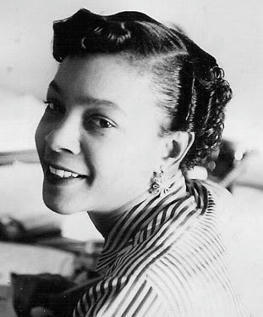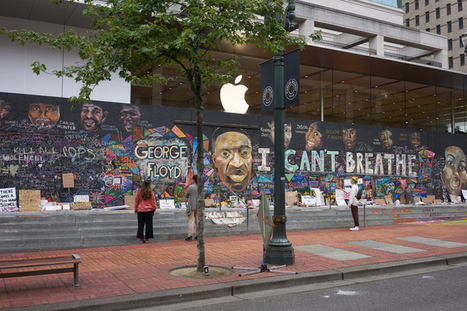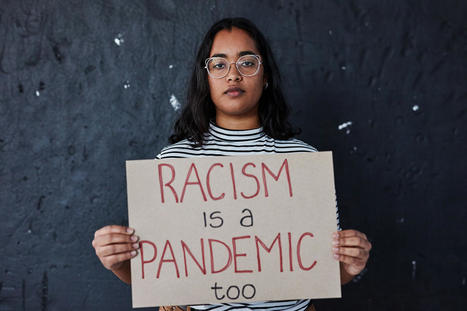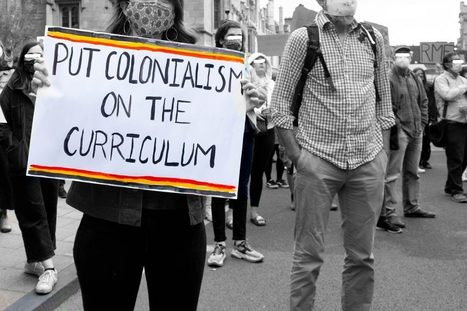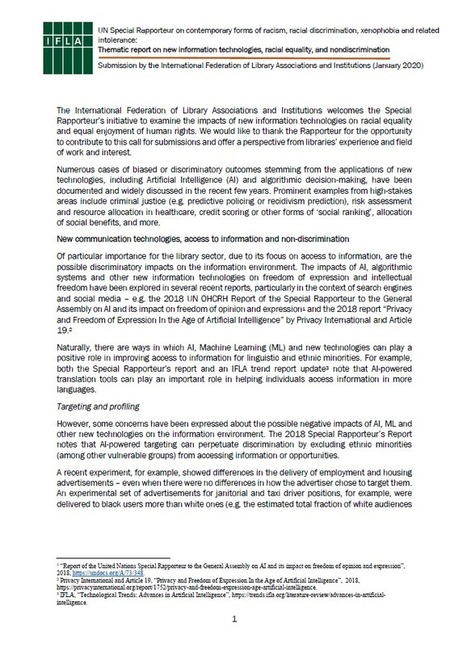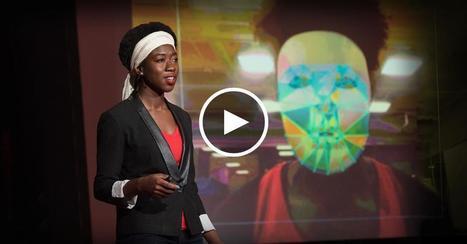Mamie Clark was the first black American to gain a PhD in experimental psychology. Her research into the effects of segregation by race in schools, using dolls, on self consciousness and attitudes on race were to have a profound influence on the legal progress in the civil Rights movemen and she continued to be an activist throughout her life.
Get Started for FREE
Sign up with Facebook Sign up with X
I don't have a Facebook or a X account

 Your new post is loading... Your new post is loading...
 Your new post is loading... Your new post is loading...
Current selected tag: 'racism'. Clear
By Naomi L. A. Smith, Assistant Library Manager and part-time Library student at UCL (@LibrarygirlN). This blog post is based on an essay originally produced for INST0021 Managing Information Organisations module for the MA Library and Information Studies at UCL. Although Black Lives Matter (BLM) is making more and more of us re-question our privilege and think about discrimination and Western power structures, this exploration needs to also extend to our workplaces. Librarians must recognise that rather than challenging systems of oppression, academic libraries have historically contributed to it by favouring white cisgender male authors at the expense of all others. Similarly, the membership figures of the Chartered Institute of Library and Information Professionals (CILIP) confirm there is under-representation of Black, Asian and Minority Ethnic (BAME ) staff in the library and information science sector.
Elizabeth E Charles's insight:
A great overivew of current state of play in academic libraries and the LIS sector, with a call to start implementing changes. If not now - when?
This blog was kindly contributed by Kalwant Bhopal, who is a Professor of Education and Social Justice, the Director of the Centre for Research in Race & Education (CRRE) and BAME Academic Lead, in the School of Education at the University of Birmingham.Her recent book, ‘White Privilege: the myth of a post-racial society’ was published by Policy Press.
On Thursday, HEPI will be publishing its first major paper on decolonising curricula.
The protests against the murder of George Floyd by police in the USA have been widely noted as marking a significant ‘moment’ in the history of race relations, not just in the United States but across the globe. The problem of such ‘moments’ is that we have seen so many of them before. #BlackLivesMatter itself was a response to a previous ‘moment’, the killing of Trayvon Martin in Florida. In the UK, the racism of police officers to cover-up the murder of Stephen Lawrence was another such ‘moment’.
This week:
This week:
The BME Attainment Gap project was conducted as studies show that there has been a gap between the degree attainment of white and BME (Black and Minority Ethnic) undergraduates at SOAS, with a greater proportion of white students attaining either a 2:1 or first class degree. These gaps cannot be attributed to differences between students at entry at SOAS, thus suggesting factors within SOAS contributing to this finding. The gap is not attributable to a deficit in BME students: any intervention must target institutional factors and not BME students themselves. |
This blog was kindly contributed by Kirstie-Anne Woodman, a recent International Relations graduate from the University of Birmingham. Kirstie-Anne is currently interning at a diversity and inclusion consultancy agency, Worth of Mouth Services.You can find Kirstie-Anne on LinkedIn.
It took me a long time to find a dissertation topic which invigorated me and I felt a true passion for. Then, by chance, I came across Nicola Rollock’s ‘Staying Power’ paper, a report on the career experiences of Black female professors in the UK. While reading, it hit me, I had never had, or even seen a Black professor at my university – let alone a Black female professor. This led me to think of all of my university experiences which had differed to those of my peers due to my Blackness. I read reports regarding the Black attainment gap, the Black drop-out rate and the need to decolonise curriculums. For the first time, feelings of otherness that I had felt throughout my entire university journey, were explained and quantified in academic terms. And so I wrote ‘Black Academic, White Space: The Insidious Legacy of Institutional Racism at Top-tier UK Universities’.
The Higher Education Policy Institute (HEPI) has published a new report with original testimony and practical guidance for UK universities on decolonising higher education. The report establishes that the decolonisation of UK universities is vital for the improvement of course curricula, pedagogical practice, staff wellbeing and the student experience. Miseducation: decolonising curricula, culture and pedagogy in UK universities by Mia Liyanage is based on over 20 hours of interviews with leading figures in academia, student activism and higher education policy. The report’s recommendations include:
Elizabeth E Charles's insight:
Definitely worth a read regarding the call for the decolonisation of universities.
In response to the murder of George Floyd, my nonprofit, Teaching Matters, organized three webinars for educators to discuss how to talk about racism in the classroom. As an Afro-Cuban education consultant, I wanted to address the varied concerns both white and non-white teachers held. In leading the webinars, I was joined by fellow education consultants at Teaching Matters.
IFLA has submitted a response to a call from the United Nations Special Rapporteur on Contemporary Forms of Racism concerning the impact of new technologies, sharing experience and highlighting the need to respect the key library value of equal access to education.
MIT grad student Joy Buolamwini was working with facial analysis software when she noticed a problem: the software didn't detect her face -- because the people who coded the algorithm hadn't taught it to identify a broad range of skin tones and facial structures. Now she's on a mission to fight bias in machine learning, a phenomenon she calls the "coded gaze." It's an eye-opening talk about the need for accountability in coding ... as algorithms take over more and more aspects of our lives. |



